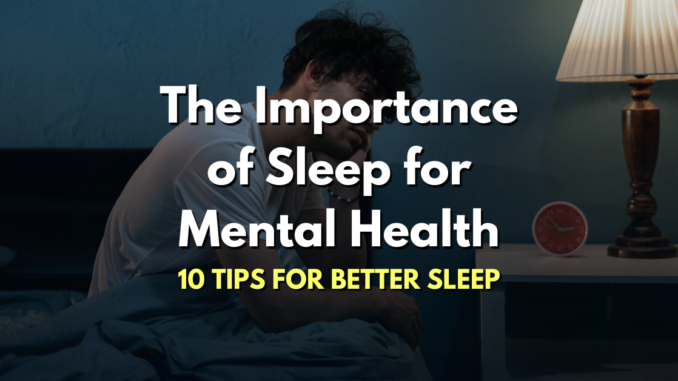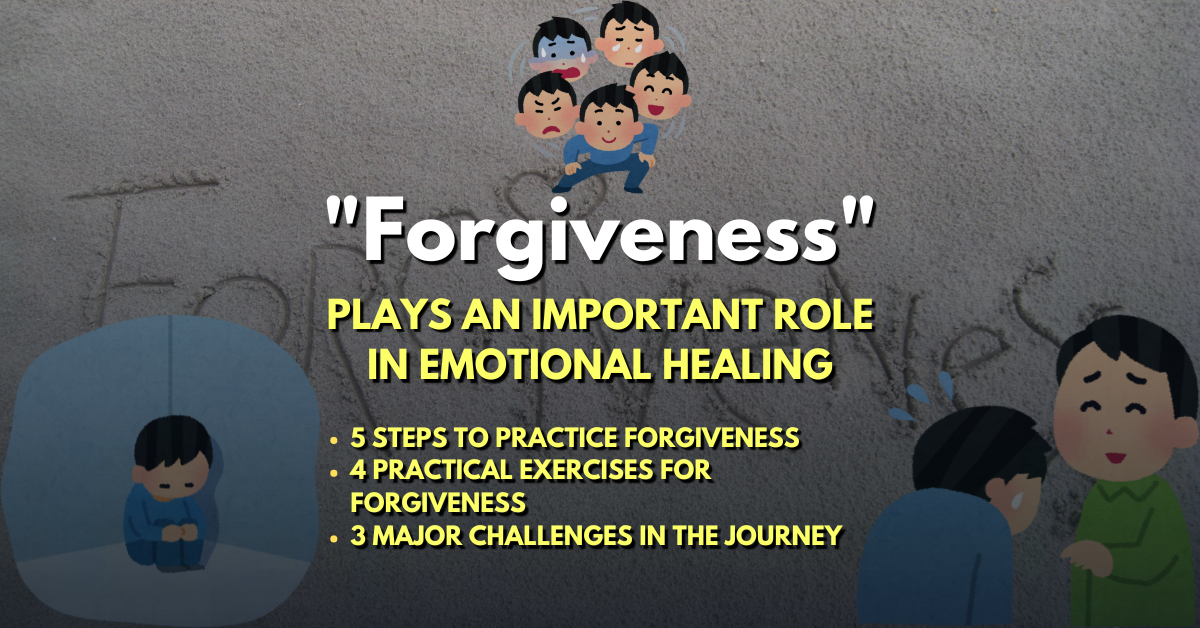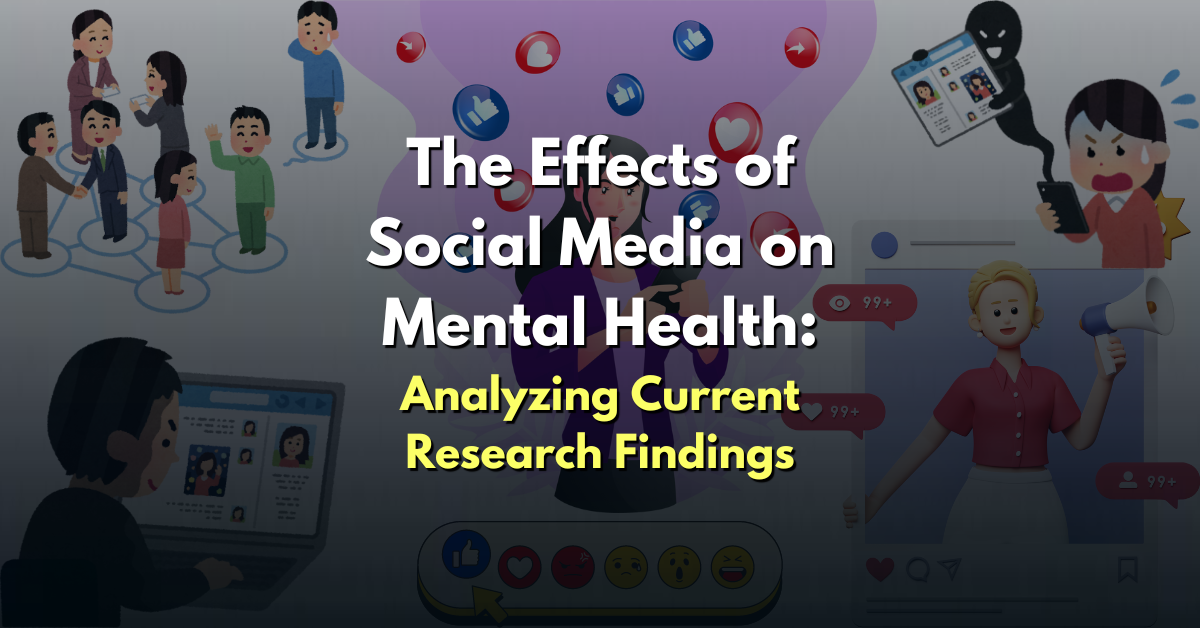
Sleep is a fundamental aspect of our well-being. Which impacts both our physical and mental health. Since sleep disorders and insomnia are getting common in people, we strive to help those who are on the verge of developing the insomnia or any other sleep disorder. Getting enough quality sleep is crucial for maintaining optimal mental health. Here’s why sleep is so important and some tips to help you improve your sleep habits
1. Restores and Rejuvenates the Brain
During sleep, the brain processes and consolidates memories, removing toxins that accumulate during the day. This restorative process helps maintain cognitive functions such as concentration, productivity, and decision-making.
2. Regulates Mood
Sleep has a direct impact on mood regulation. Lack of sleep can lead to irritability, mood swings, and increased stress. Consistent quality sleep helps stabilize emotions and improve overall mood.
3. Reduces Stress and Anxiety
Adequate sleep helps reduce levels of stress and anxiety. When you’re well-rested, your body is better equipped to handle stress and your mind can approach problems with a clearer perspective.
Also Read: 444+ Helpful Affirmations for Everyday
4. Improves Emotional Resilience
Good sleep enhances emotional resilience, making it easier to cope with life’s challenges. It provides a stable foundation for managing emotions and reduces vulnerability to mental health issues such as depression and anxiety.
5. Enhances Cognitive Function
Sleep is essential for cognitive processes, including attention, learning, and memory. Poor sleep impairs these functions, making it difficult to focus, retain information, and perform daily tasks effectively.
6. Boosts Immune System
Quality sleep supports a healthy immune system, which is crucial for fighting off illnesses. A strong immune system contributes to overall well-being, including mental health.
7. Prevents Mental Health Disorders
Chronic sleep deprivation is linked to an increased risk of developing mental health disorders such as depression, anxiety, and bipolar disorder. Prioritizing sleep can help prevent these conditions and support long-term mental health.
10 Tips for Improving Sleep Quality
1. Maintain a Consistent Sleep Schedule
Go to bed and wake up at the same time every day, even on weekends. Consistency helps regulate your body’s internal clock and improve sleep quality.
2. Create a Relaxing Bedtime Routine
Develop a calming pre-sleep routine to signal your body that it’s time to wind down. This could include activities like reading, taking a warm bath, or practicing gentle yoga.
3. Optimize Your Sleep Environment
Ensure your bedroom is conducive to sleep. Keep the room cool, dark, and quiet. Invest in a comfortable mattress and pillows, and remove any electronic devices that might disrupt your sleep.
4. Limit Exposure to Screens
The blue light emitted by phones, tablets, and computers can interfere with your sleep. Avoid screens at least an hour before bedtime to help your body produce melatonin, the hormone that regulates sleep.
5. Be Mindful of Food and Drink
Avoid large meals, caffeine, and alcohol close to bedtime. These can disrupt your sleep or make it harder to fall asleep. Opt for a light snack if you’re hungry before bed.
6. Exercise Regularly
Regular physical activity can help you fall asleep faster and enjoy deeper sleep. However, avoid vigorous exercise close to bedtime as it may interfere with your ability to fall asleep.

7. Manage Stress
Include stress-reducing activities into your daily routine, such as meditation, deep breathing exercises, or journaling. Managing stress can help you relax and improve your sleep quality.
8. Limit Napping Time
While short naps can be refreshing, long or irregular napping during the day can negatively affect your nighttime sleep. If you need to nap, limit it to 20-30 minutes.
9. Exposure to Natural Light
Spend time outside during the day to help regulate your sleep-wake cycle. Natural light exposure during the day can improve your sleep quality at night.
10. Seek Professional Help if and When Needed
If you’re struggling with sleep despite trying these tips, consider seeking help from a healthcare provider or a sleep specialist. They can help identify underlying issues and provide targeted treatments.
Prioritizing sleep is one of the best investments you can make for your mental health. When you start adopting healthy sleep habits, you can enhance your emotional well-being, cognitive function, and overall quality of life.
FAQ: The Importance of Sleep for Mental Health
Q: Why is sleep important for mental health?
A: Sleep is crucial for brain restoration, mood regulation, stress reduction, emotional resilience, cognitive function, immune system support, and preventing mental health disorders.
Q: How does sleep restore and rejuvenate the brain?
A: During sleep, the brain processes and consolidates memories, and removes toxins accumulated during the day, which helps maintain cognitive functions like concentration and decision-making.
Q: How does regular exercise affect sleep?
A: Regular physical activity can help you fall asleep faster and enjoy deeper sleep. However, avoid vigorous exercise close to bedtime.
Q: How does sleep reduce stress and anxiety?
A: Adequate sleep helps reduce stress and anxiety levels by allowing your body and mind to rest and recover, leading to a clearer perspective on problems.
Q: How does sleep improve cognitive function?
A: Sleep is essential for attention, learning, and memory. Poor sleep impairs these functions, making it difficult to focus, retain information, and perform daily tasks effectively.
Q: Can sleep boost the immune system?
A: Yes, quality sleep supports a healthy immune system, which is crucial for fighting off illnesses and contributes to overall well-being, including mental health.




Leave a Reply